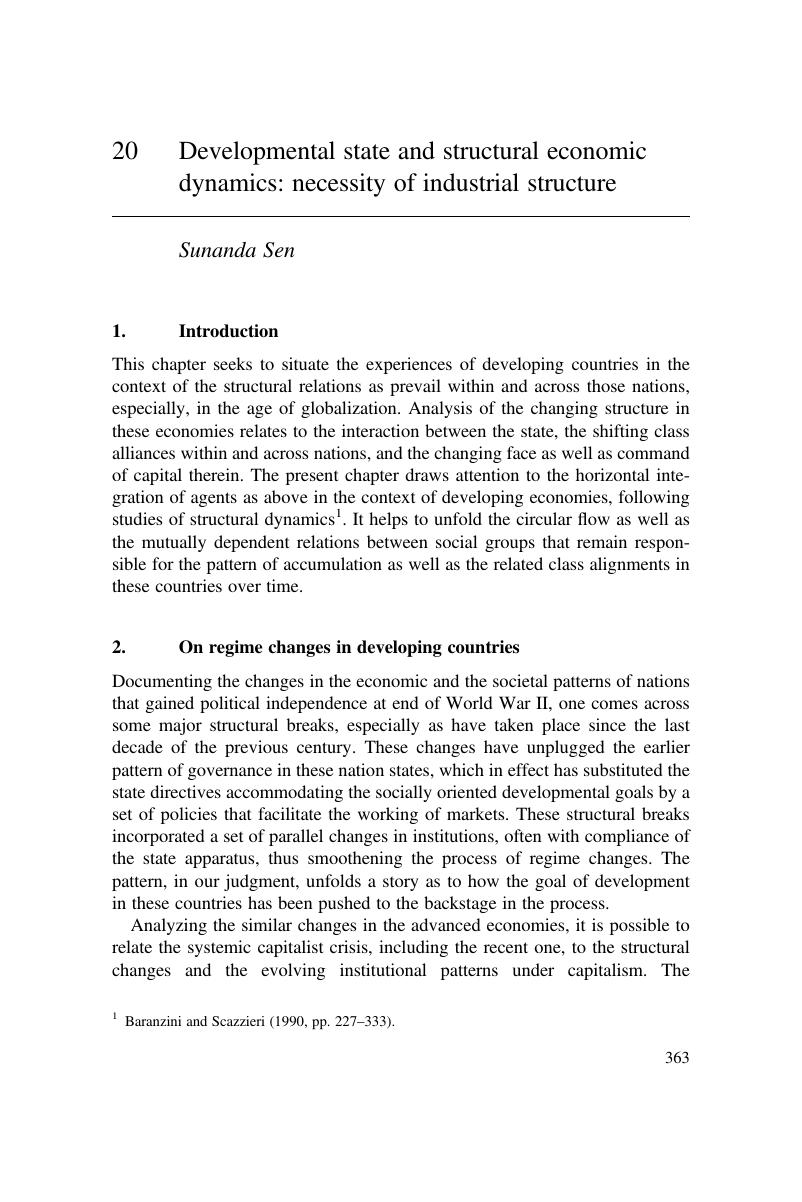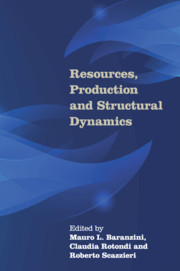Book contents
- Resources, Production and Structural Dynamics
- Resources, Production and Structural Dynamics
- Copyright page
- Dedication
- Contents
- Figures
- Tables
- Contributors
- Preface
- Book part
- 1 Resources, producibility and economic dynamics: a framework
- Part I Resources and distribution in a structural perspective
- Part II Structural dynamics: resources and multi-sectoral linkages
- Part III Resources, institutions and social structures
- Part IV Resources, industrial change and the structure of the world economy
- 18 Resources,industrialtransformation and the structure of the world economy
- 19 Transformation and resources in the ‘new’ geo-economy
- 20 Developmentalstate and structural economic dynamics: necessity of industrial structure
- 21 Resources, institutional forms and structural transformation in the BRICKs: the ‘hybrid model of late capitalism’
- 22 On manufacturing development under resources constraints
- Part V Towards a political economy of resources and structural change
- Name Index
- Subject Index
- References
20 - Developmentalstate and structural economic dynamics: necessity of industrial structure
from Part IV - Resources, industrial change and the structure of the world economy
Published online by Cambridge University Press: 05 May 2015
- Resources, Production and Structural Dynamics
- Resources, Production and Structural Dynamics
- Copyright page
- Dedication
- Contents
- Figures
- Tables
- Contributors
- Preface
- Book part
- 1 Resources, producibility and economic dynamics: a framework
- Part I Resources and distribution in a structural perspective
- Part II Structural dynamics: resources and multi-sectoral linkages
- Part III Resources, institutions and social structures
- Part IV Resources, industrial change and the structure of the world economy
- 18 Resources,industrialtransformation and the structure of the world economy
- 19 Transformation and resources in the ‘new’ geo-economy
- 20 Developmentalstate and structural economic dynamics: necessity of industrial structure
- 21 Resources, institutional forms and structural transformation in the BRICKs: the ‘hybrid model of late capitalism’
- 22 On manufacturing development under resources constraints
- Part V Towards a political economy of resources and structural change
- Name Index
- Subject Index
- References
Summary

- Type
- Chapter
- Information
- Resources, Production and Structural Dynamics , pp. 363 - 383Publisher: Cambridge University PressPrint publication year: 2015



